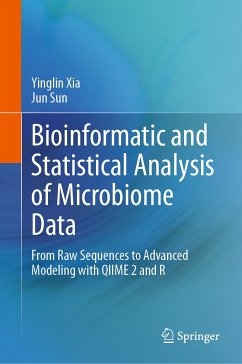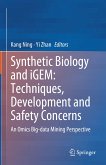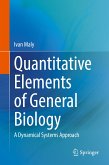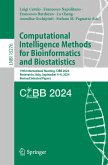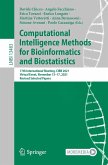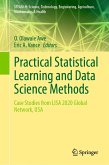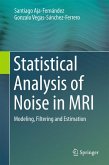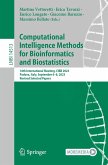This unique book addresses the bioinformatic and statistical modelling and also the analysis of microbiome data using cutting-edge QIIME 2 and R software. It covers core analysis topics in both bioinformatics and statistics, which provides a complete workflow for microbiome data analysis: from raw sequencing reads to community analysis and statistical hypothesis testing. It includes real-world data from the authors' research and from the public domain, and discusses the implementation of QIIME 2 and R for data analysis step-by-step. The data as well as QIIME 2 and R computer programs are publicly available, allowing readers to replicate the model development and data analysis presented in each chapter so that these new methods can be readily applied in their own research.
Bioinformatic and Statistical Analysis of Microbiome Data is an ideal book for advanced graduate students and researchers in the clinical, biomedical, agricultural, and environmental fields, as well as those studying bioinformatics, statistics, and big data analysis.
Dieser Download kann aus rechtlichen Gründen nur mit Rechnungsadresse in A, B, BG, CY, CZ, D, DK, EW, E, FIN, F, GR, HR, H, IRL, I, LT, L, LR, M, NL, PL, P, R, S, SLO, SK ausgeliefert werden.
Hinweis: Dieser Artikel kann nur an eine deutsche Lieferadresse ausgeliefert werden.

